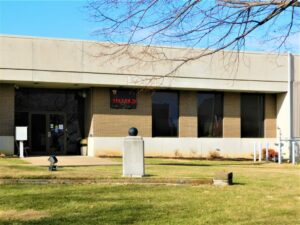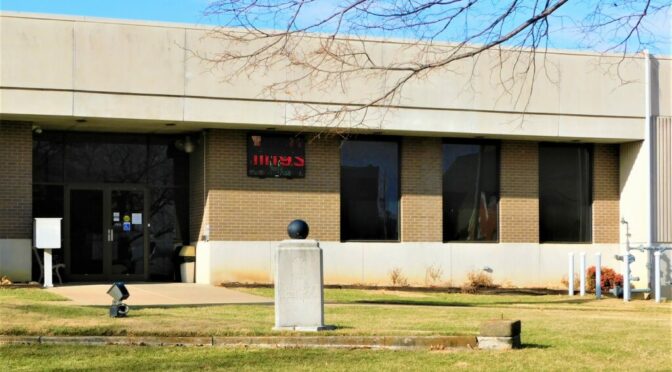
The Bourbon County Commission voted to bring Sheriff Bill Martin’s pay up to $75,000. This was to correct the lack of pay raise passed in the Jan. 20 meeting.
Commissioner Leroy Kruger had received feedback from citizens that Sheriff Martin has become the lowest-paid elected official. He opened the discussion, saying that Bill was under the impression that a $5000 raise was budgeted for him and he should have at least that much.
Commissioner Dave Beerbower said, “I’ve been opposed to these big increases in salary over the last couple of weeks.” They may be deserved, but it’s more about how we get them there. In the initial resolution, the other elected officials were getting a big increase to their base salary. The sheriff was already at a higher rate than them, as his position warrants, and was going to receive an 8% raise. Now, after the revision last week, that brought the raises of the other elected officials to about 26% from the base salaries. “I would like to see it staggered, but we didn’t do that,” he said.
Average salaries for sheriffs in Kansas ranges from $75,000 to $100,000, per Beerbower’s research. He went on to say that if the county raised him about 26%, “like we did the others, that would raise him to $75,600 and that would put him at the bottom of that scale for the state.”
“I’m not opposed to him getting a raise at all,” said Commissioner Brandon Whisenhunt.
A citizen asked if there’s enough room in the budget for the salary increase.
“In the original resolution, there was money set aside for the increases that they originally asked for and then we lowered that last week,” said Beerbower. So there is money out of that that still would be available to increase him more than the $5000.
“Sheriffs are typically the highest paid in most counties,” because of the risks inherent to their positions, Beerbower also said.
He went on to explain that there’s at least $30,000 left after changing the resolution from the original request of $70,000 for each position (clerk, register of deeds, and treasurer) to $60,000.
Beerbower moved to increase the sheriff’s salary by 26% to $75,600.
Whisenhunt moved to raise the sheriff’s salary to $75,000 and give a $5,000 raise to the EMS director. Beerbower seconded. The motion passed unanimously.
Susan Walker, County Clerk said she would start a new salary schedule next week.
During the public comments section of the meeting, Clint Walker spoke to the commission about solar and open government. He advised them to slow down and not make hasty decisions. “Do your research and make a good decision on things.”
“My specialty in the military was nuclear, biological, and chemical, so I know a little bit about this stuff and have dealt with this stuff,” said Walker, when referring to lithium batteries as part of using solar power. Lithium batteries can be dangerous, but many businesses in the area use solar. If solar is so dangerous, why do we use it in so many places? He asked.
He reminded the commission that county agreements need to be consistent, saying that a projected $4 million in tax income was to come from solar businesses over 10 years. “I’m sure that y’all will figure out and find a business to come in and make up that $4 million in taxes.”
County Clerk Susan Walker brought some end-of-year reallocations to the commission for approval. These were due to late invoices and a major issue with an accounts payable that never posted to the general ledger.
The two funds involved were the Appraiser fund and Sheriff’s fund.
In order to keep within the bound of both budget and cash laws, the commission was asked to reallocate from the sheriff’s fund to the general fund for $52,325.45; and from the appraiser’s fund to the general fund for $4,500. She explained that if the commission didn’t reallocate these amounts, they will have a budget violation in both the sheriff and appraiser funds.
Walker explained that the sheriff and appraiser had enough cash to cover the expenses, but not enough budget. They must follow budget law and cash law. There should have been a budget amendment done at the end of the year, had the issue been known.
Walker explained that this is a 2024 matter. “I need to know if, in the general fund, in 2025, if you want me to move cash from these two funds to the general fund so that you recoup it. It’s two separate issues, budget and cash,” she said.
At the end of the year [2024], the clerk asked each department if they needed an increase in their budgets, but received no response.
Walker has offered to create a purchase order system so that the expenses are encumbered on the date of service or purchase, rather than each department having to collect invoices. “It helps with these kinds of things when you get down to the end of the year.”
Whisenhunt made motions to reallocated the expenses as listed, Beerbower seconded and it carried unanimously.
Discussion is expected regarding budget as the year wraps up.
After conducting two separate executive sessions about non-elected personnel, Whisenhunt announced: “We are going to hire a new county counselor today. Bob Johnson from Iola.” The vote was unanimous.
Terry Hallsey, EMS director, asked the commissioners for permission to start getting bids for new ambulances. It will take 3-5 years to get the actual ambulance. The current new one took 2 and a half years to obtain. Commission approved the hunt for new bids.
Whisenhunt addressed the issue of meeting decorum, asking that when the meeting is in session, those in attendance and the commissioners please turn cell phones to silent to avoid distractions.
Whisenhunt also introduced a noise ordinance discussion he had been receiving calls on. Some folks in the north east part of the county building bitcoin mining computers that require diesel generators. Citizens want it quiet after 10. The county currently has no noise ordinance. Commission suggested asking the new county counselor about possible steps.
Kruger said that historically it won’t be something easily done.
Commission approved a resolution setting legal descriptions for the five commissioner districts. These districts have already been settled when the maps were chosen at the beginning of 2025.
The election for districts 4 and 5 will be the Bourbon county 2025 general election.
Primary election dates: June 2, candidate filed deadline of noon.
July 15, deadline to register to vote or update registration.
July 16, advanced ballots by mail
July 28 – Aug. 1, early voting at the courthouse from 8:30a.m. to 4:30p.m. Aug. 2, is 8a.m.-12p.m., Aug. 4 is 8:30a.m.-12p.m.
Aug. 5 is primary election day from 7a.m. to 7p.m. at your normal polling place.
Polling place changes will be mailed out to everyone.
Commissioners selected the board seats and advisory positions they will serve on this year.
Beerbower: Juvenile detention, senior citizens, health department
Kruger: Fair board, REDI
Whisenhunt: Bourbon County Conservation district
During commissioner comments, Beerbower brought up Michael Barnard volunteering services to repair the Elm Creek Lake Shelter House. Beerbower and the other commissioners plan to ask the new counselor about liability, so the county can move forward to use Barnard’s services. There may also be FEMA money available and a state grant to help fix the dam.
Kruger had a juvenile detention center question for Beerbower to ask when he meets with the juvenile detention board. He said that when he (Kruger) was in law enforcement, it took a judge’s order to send a juvenile there. With the rate for that bed being so high and a potential system in play in here in town, is that something that we need to keep holding down money for. “It’s a very big expense for something we rarely, if every, use.”
Kruger also said, “I want to thank everyone for having patience with us,” as we learn how to do this job. “I appreciate everyone sticking with us.”
Whisenhunt wrapped up the meeting saying, “I want to try to bring some fun back into county politics.” He then suggested a youth day, where selected youth come and try to do commissioner jobs for a day.
